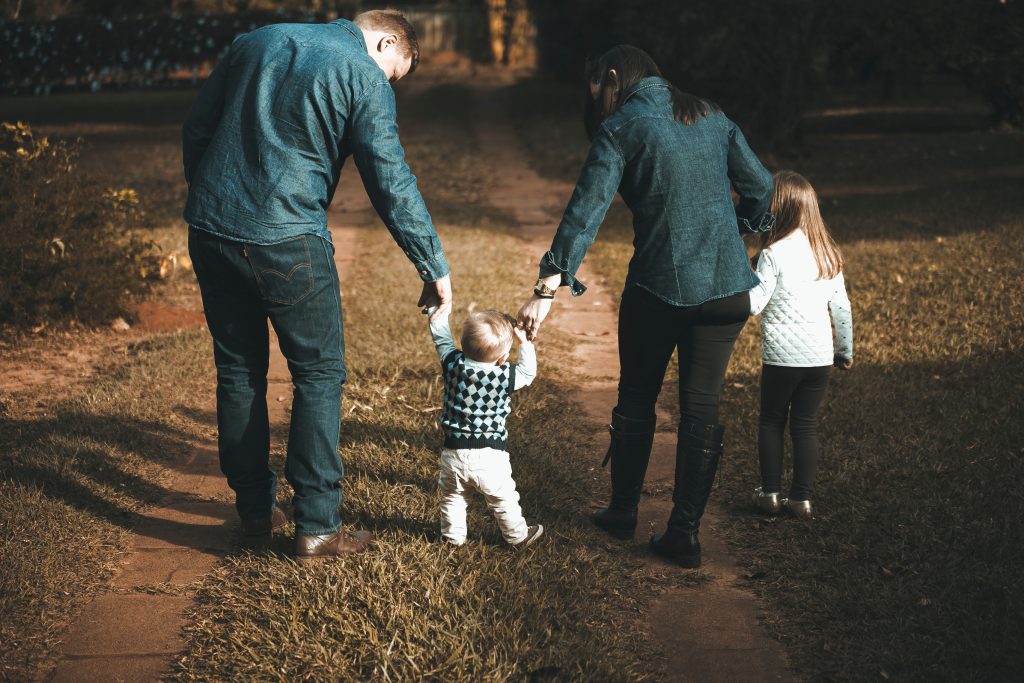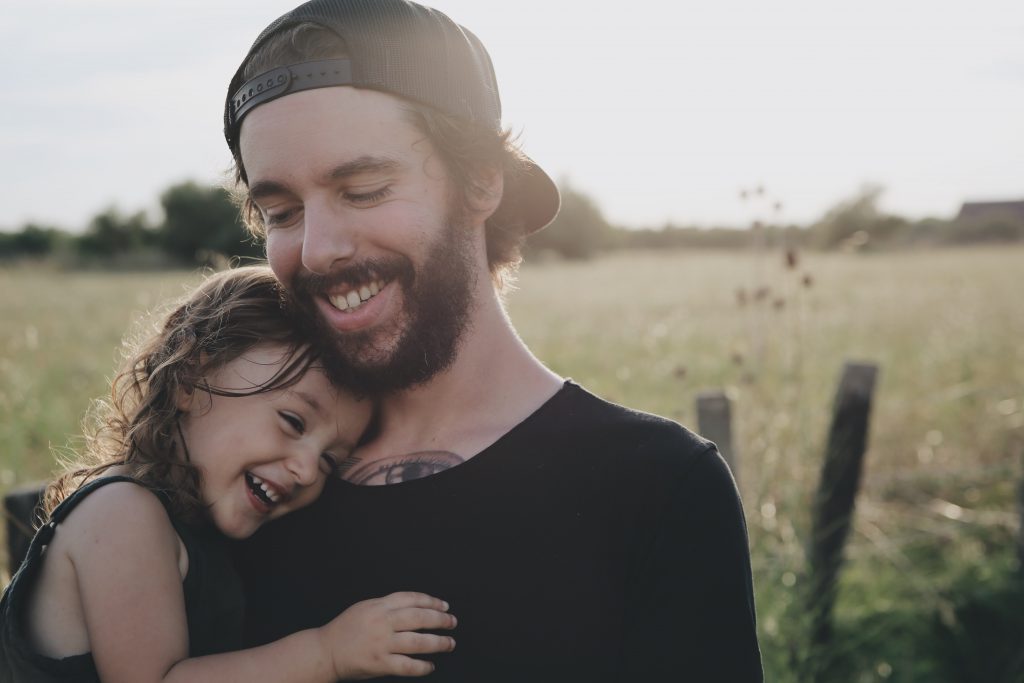
Addiction is a family disease. The stress an active alcoholic or addict places on a family can be overwhelming and destructive. Emotional strain, financial stress, unpredictability and uncertainty lurk around every corner. Families may suffer for years, even decades, in pursuit of help for their loved one.
An active alcoholic or addict can dominate the family’s attention and resources, leaving very little for other members of the family. And often those who suffer the most in the family are the ones whose voice may be the easiest to forget or discount when everyone else is focused on putting out fires. For children living in alcoholic or addict homes, fear, anxiety, and confusion may feel like a “normal” state of living.
According to a 2017 report from the Substance Abuse and Mental Health Services Administration, as many as 1 in 8 children, or 8.7 million children, aged 17 or younger live in a home where at least one parent has experienced a substance use disorder in the last year. The National Association for Children of Addiction (NACoA) reports that more than 28 million Americans are children of alcoholics.
But when a parent or caregiver can find sobriety, the entire family can begin to heal and to be restored, many times to something better than ever before. While the impulse can be to protect children from tough conversations about what’s happening with dad, including them in a dialogue can help them feel seen and heard, no matter their age.
Ayne-Wallace Nichols, a licensed clinical social worker specializing in addiction and trauma, shares with us suggestions for how to talk to your children when dad leaves for treatment and what comes next.
Do make the conversation age-appropriate.
“Tailor to what is developmentally appropriate,” says Nichols. For a young child, it might sound something like, “Dad is sick and he is going away so he can work on getting better. Just like how if we’re sick, we go to the doctor.” Putting it in familiar terms gives a child a chance to better understand the situation.
For an older child, Nichols says you can often be more specific and direct about the fact that dad is headed to treatment for alcoholism or drug addiction. “Kids typically know more and see more than we want to acknowledge,” she says. Teenagers are especially skilled at seeing through smokescreens, so an honest and straightforward approach is usually best.
Nichols says it’s important to make sure it’s actually a conversation, too. Children should be given an opportunity to ask questions and to air their concerns and feelings rather than being subjected to a long one-sided talk.
It’s also wise not to use this conversation as a time to discuss the dangers of drugs and alcohol. Keep the focus—and your language—simple and clear.
Do let them know this isn’t their fault.
The NACoA reports that “addicted parents often lack the ability to provide structure or discipline in family life, but simultaneously expect their children to be competent at a wide variety of tasks earlier than do non-addicted parents.” Children of alcoholics or addicts may feel an enormous sense of guilt, even ownership, about what’s going on with their addicted parent, especially if they’ve been placed in a position previously to know or do more than is age-appropriate. They may want to blame themselves or assume the situation has something to do with them.
By reassuring your child that they didn’t cause dad’s addiction, nor can they cure it or control it, can begin to free them of that heavy burden.
“You can say to your child, ‘You are loved. You are special. It’s not your fault,’” says Nichols. “’ have work to do, and we’re going to do it because you’re important.’”
Do make an outside professional available to them.
Sometimes parents just aren’t going to know what to say to their children, and that’s okay. In this situation, an outside professional, like a family counselor or social worker, may be helpful in working with both individual children and the family as a whole to navigate this unfamiliar and stressful experience. Nichols believes involvement from the entire family is key to long-term success, even if dad doesn’t stay sober.
Not only can a professional help clarify questions like What is alcoholism? or What is addiction?, but s/he can also be a resource to help the family learn how to move forward together, ensuring each child is heard, too.
Don’t make up answers.
It’s very likely your child will have questions about what’s going on. They may ask things like, “How long will Dad be gone?” or “Who will pick me up from school?” And some questions may be more difficult like, “Does this mean you and Dad are getting a divorce?”
“It’s okay to not know the answers to things,” says Nichols. “You don’t have to make something up just because there’s an uncomfortable question. You can say, ‘We’re taking it one step at a time, and we’re not sure. But we love you.’”
It’s also very likely if your loved one is about to leave for treatment you have no idea what’s going to happen next. You may feel just as uncertain as your child, if not more so. Reminding your child that they are safe, loved, and that dad going away isn’t their fault can’t be said enough when the future is unknown.
Don’t avoid conversations.
Avoid the tendency to ignore the elephant in the room. If dad is struggling with addiction or is leaving for treatment, then it’s likely your child is already aware that something isn’t quite right at home. They may be too afraid or intimidated to speak up and are looking to you to see if it’s okay to ask questions or talk about it.
“ is a messy process. There’s going to be some mistakes or regrets—we should have said more, or we should have said less—but avoiding the conversation altogether isn’t helpful,” says Nichols.
Because addiction is a family disease, the whole family—not just dad—will be learning how to create a new, healthier homeostasis. Addressing questions and concerns as they arise—and at an age-appropriate level—offer space for a child to begin to heal.
Don’t make assumptions.
Another common pitfall Nichols sees are parents or caregivers assuming they already know what their child is thinking or feeling, or assuming their child understands what’s going on.
Nichols says younger children may do better with showing how they are feeling rather than saying it out loud. Give them space to draw or color. Introduce children’s books that show how to move through tough or scary situations.
Continue to try to open up a dialogue with your child. When possible or necessary, provide an outside resource where they can share openly about what they’re thinking or feeling.

Each day at Discovery Place we witness families doing the hard work of learning to navigate the challenges of addiction together. We also get to witness families returning to healthier, happier, and more joyful lives through recovery.
Each Friday, we welcome the family and friends of our guests to Discovery Place for food, fellowship, and a family meeting. We value the role you play in the recovery process and want to equip you with as many useful resources as possible. Head over to our Family Matters page for more information.
And be sure to check out the following links to additional resources that may be helpful for the loved ones of addicts and alcoholics:

